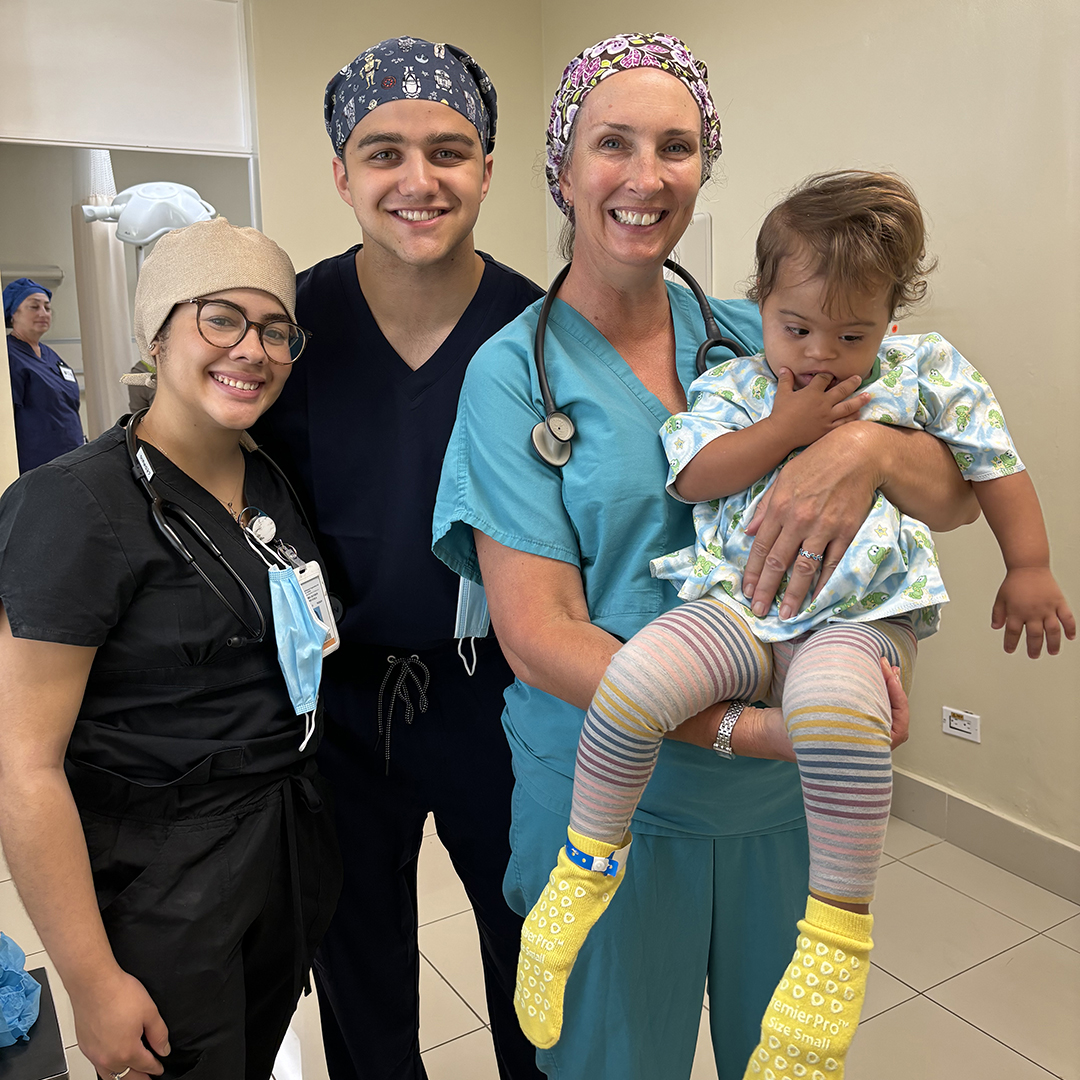To be a great doctor
Joshua Lerman is not leaving his goals in medicine up for interpretation.

Joshua Lerman with colleagues in the Dominican Republic.
Joshua Lerman ’24 aspires to be a good doctor, and he is working diligently to become one. But early in his training, he’s learning that being “good” is more than acing the MCAT.
“While a good doctor might have an intellectual mind, surgeon’s hands, or years of experience, a great doctor also has heart,” Lerman says.
It’s a value he recognized firsthand when, for a week last year, he accompanied a team of doctors and nurses from Healing the Children New Jersey on an ophthalmology mission trip to the Dominican Republic. The team performed 37 eye surgeries and prescribed nearly 100 pairs of glasses to pediatric and adult patients who visited the hospital in La Romana on the island’s southeastern coast.
As the only college student on the team — and having completed the Spanish for Healthcare Professionals certificate at TCNJ — his job was to serve as an interpreter between the English-speaking medical staff and the Spanish-speaking patients and their families to bridge the gap created by the language barrier in a hospital setting. He’d help with necessary work like setting appointments, explaining procedures, and interpreting questions and answers between medical staff and patients. But his real impact transcended translations.
When patients would arrive for surgery, he’d sit with them in the pre-op room and chat with them in their native language to ease their nerves. For one pediatric patient, Lerman shared his favorite Spanish playlist on Spotify. For another, he helped her select the perfect emotional support stuffed animal — an ostrich — from the pile. He says these interactions allowed him to extend beyond the role of interpreter and acknowledge what the patients were experiencing in the context of their own culture and beliefs.
“While I was making a difference by assisting with the language barrier, I learned to also make a difference in the lives of the patients,” Lerman says. “My experience in the Dominican Republic revolved around treating patients, not their conditions.” He says his role was as vital to patient success as the actual medical procedures. “I can certainly say any child or parent who stepped into the pre-op room left with a smile on their face.”
It’s this humanization of medicine, particularly across cultures, that motivates Lerman as he begins medical school. A biology major enrolled in TCNJ’s seven-year medical program, he’s spent the past three years at TCNJ and started his first year of medical school at Rutgers New Jersey Medical School in August. He hopes to one day be a surgeon.
To provide care that supports language and cultural differences, Lerman won’t always have to travel abroad. He noted Latin American and Latino populations at home also benefit from culturally thoughtful health care.
“I’m definitely going to encounter that in medical school and in my future career,” Lerman says. “This opportunity definitely showed me how important it is to make patients feel more welcome and more accepted, stepping into a medical setting where their beliefs, culture, ideas, and ideals are respected and intertwined in the treatment they’re receiving.”
Posted on September 12, 2024

